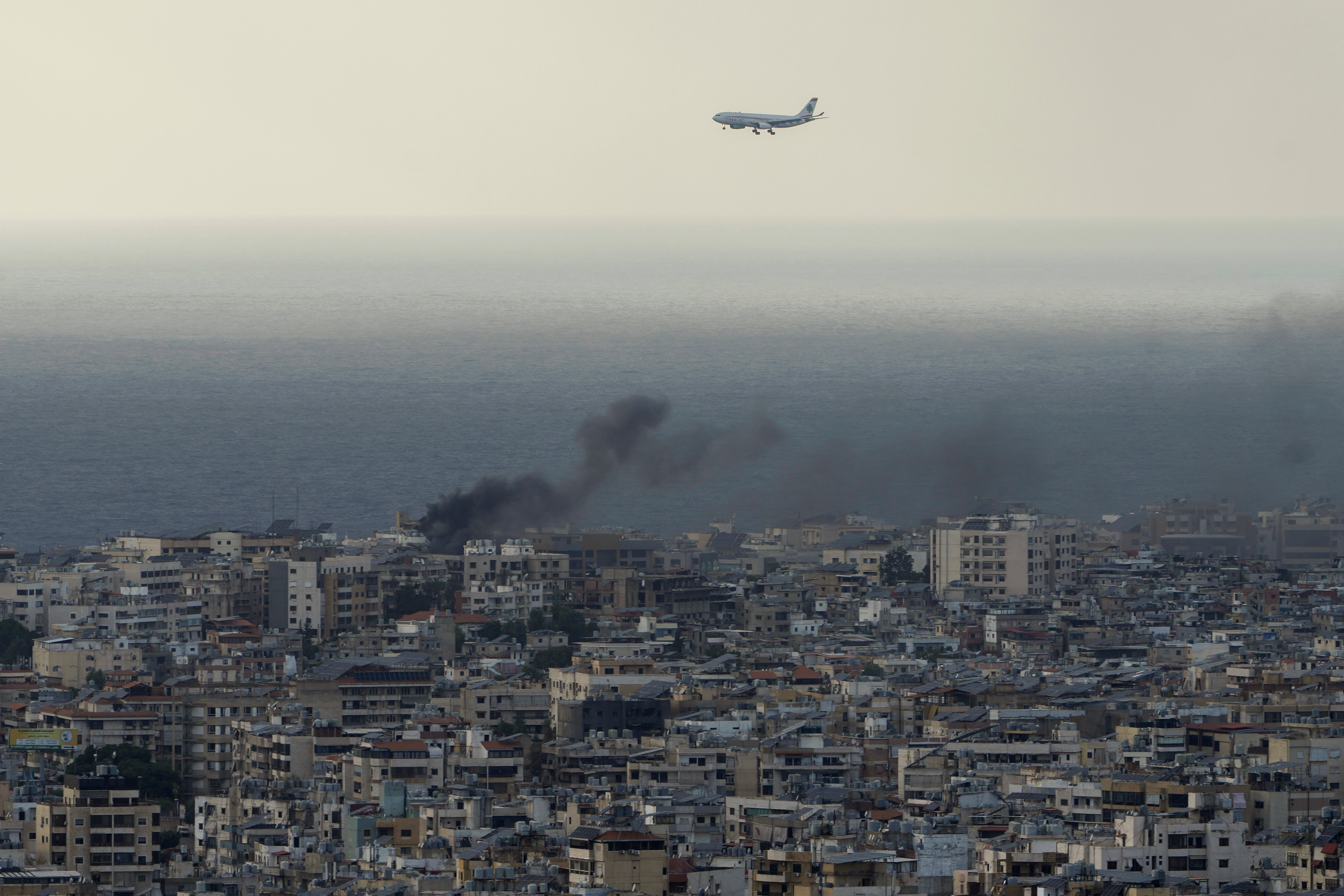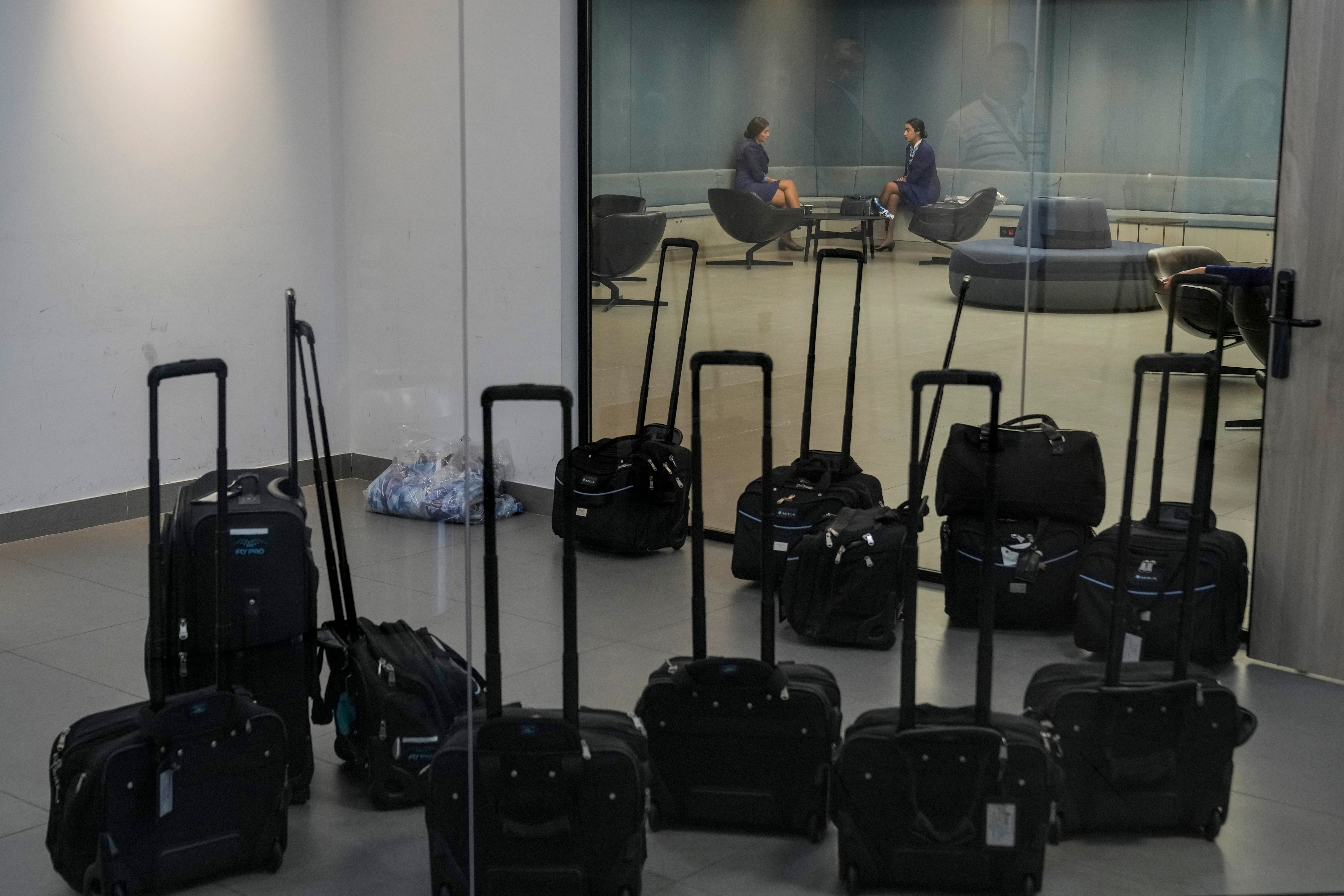Since Israel began bombarding Beirut’s southern suburbs as part of its offensive against the Hezbollah militant group, Lebanon‘s national air carrier has become a local icon.
Middle East Airlines is the only commercial airline still operating out of the Beirut airport, located on the coast next to the densely-populated suburbs where many of Hezbollah’s operations are based.
Unlike the bruising monthlong war between Israel and Hezbollah in 2006, in which an Israeli strike almost immediately took Lebanon’s only commercial airport out of commission, it has not been targeted in the current conflict.
Capt. Mohammed Aziz, adviser to MEA chairman Mohamad El-Hout, said the airline has received assurances that Israel won’t target its planes or the airport as long as they are used solely for civilian purposes. The carrier conducts a risk assessment each day to determine if it’s safe to fly, he said.
“As long as you see us operating, it means our threat assessment says that we can operate,” Aziz said. “We will never jeopardize the life of anyone.”

Still, the sight of jetliners rising and descending as fire and clouds of smoke blacken the Beirut skyline can be alarming.
Some of the most dramatic images making the rounds on social media depicting jets landing in fiery hellscapes have been AI-generated. And, Aziz said, the plumes of smoke that appear in news footage are often farther away from the airport than they appear.
Still, some strikes have landed too close for comfort. On Monday night, one hit the coastal area of Ouzai, about 200 meters (650 feet) from one of the runways. There were no planes in the area at the time.
Since the escalation began, many embassies have chartered extra commercial flights to get their citizens out. Other flights have carried Lebanese citizens to nearby destinations like Turkey and Cyprus to wait out the conflict.
The number of daily MEA flights ranges from 32 to 40 — not much below the usual number for this time of year, Aziz said. The difference: now the flights usually depart Beirut full and return two-thirds or three-quarters empty.

Click Here to Read the Full Original Article at The Independent Travel…
